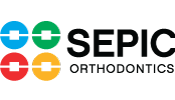Peters Township 724-942-4229
Oral Cancer Screenings: Your Orthodontist Can Help

Maintaining a healthy smile is a top priority during orthodontic treatment with braces or Invisalign. But oral health extends beyond straight teeth, and early detection of oral cancer is crucial. This blog post will explore screening recommendations for oral cancer, highlighting the role your orthodontist plays in this vital process.
Why Screen for Oral Cancer?
Oral cancer, encompassing cancers of the mouth and throat, affects thousands of people every year. Early detection is key to successful treatment, often leading to higher survival rates and less invasive procedures. Regular screenings can help identify potential problems in their early stages, increasing the chances of a positive outcome.
The Importance of Orthodontic Checkups
While orthodontists specialize in tooth alignment, they also play a significant role in oral health maintenance. During your regular orthodontic checkups, your orthodontist will likely perform a comprehensive oral examination that includes a visual screening for oral cancer. This examination assesses the soft tissues of your mouth, looking for any abnormalities such as:
- Discolored or red patches on the gums, tongue, or inner cheeks
- Mouth sores that persist for extended periods
- Lumps in the neck or cheek
- Unexplained numbness or tingling
Early Detection Saves Lives
If your orthodontist detects any suspicious signs during your screening, they will refer you to a dentist or specialist for further evaluation. Early detection allows for treatment options like surgery, radiation therapy, or chemotherapy to be more effective with a higher chance of success.
Who Should Get Screened?
The American Cancer Society recommends that everyone over 18 receives an oral cancer screening as part of their regular dental checkups. However, some individuals may benefit from more frequent screenings, including those with:
- A history of tobacco use: Smoking, chewing tobacco, and even smokeless tobacco significantly increase your risk.
- Heavy alcohol consumption: Excessive alcohol intake, particularly when combined with tobacco use, is a major risk factor.
- Human Papillomavirus (HPV): Certain HPV strains can contribute to oropharyngeal cancers.
Self-Exams at Home
In addition to regular screenings with your orthodontist or dentist, you can also perform monthly self-exams at home. Stand in front of a mirror with good lighting and visually examine your mouth for any unusual changes. Feel the soft tissues of your cheeks, tongue, and gums for lumps or bumps. If you notice anything concerning, schedule an appointment with your dental professional right away.
Taking Charge of Your Oral Health
Oral cancer is a serious health concern, but with awareness and regular screenings, you can significantly reduce your risk. Schedule regular appointments with your orthodontist and dentist, don’t hesitate to ask questions, and be mindful of any changes in your mouth. By working together with your dental team, you can maintain a healthy smile and safeguard your overall health.
